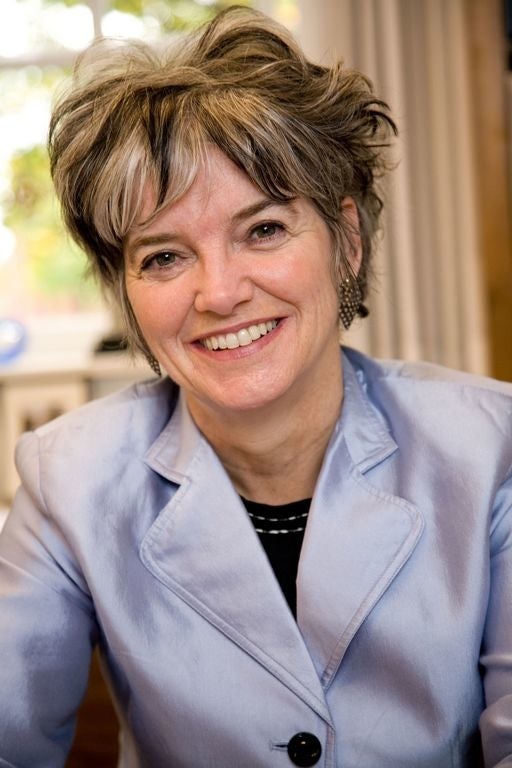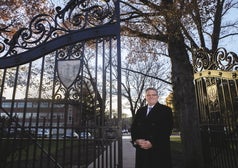MERC: MetroWest economy expanding again
 Patricia Flynn, Bentley University economics professor
Patricia Flynn, Bentley University economics professor
The MetroWest region appears to have dusted itself off and rebounded from the recession, Donald MacRitchie, an economics professor at Framingham State University, told a crowd of about 100 at the Sheraton Framingham Hotel on Wednesday morning.
“Barring unforeseen events, Greater MetroWest looks to be solidly into expansion … getting back to the employment levels that existed prior to the Great Recession,” MacRitchie said, highlighting data compiled by the MetroWest Economic Research Center (MERC) at FSU, and based on statistics from the state’s Executive Office of Labor and Workforce Development.
MacRitchie’s presentation was part of MERC’s annual conference, which focuses on the health of 13 MetroWest communities surrounding Framingham.
According to MERC’s report, “Economic Profile 2014,” employment in Greater MetroWest was trending upward in June 2013, the most recent month reported, reaching 183,900. That’s the highest level since June 2008, when employment reached an historical peak of 182,300.
Leading employment in Greater MetroWest is the manufacturing sector, which employed approximately 25,000 and produced annual wages of $2.9 billion in 2012.
While retail and health care followed manufacturing in number of people employed, the professional, scientific and technical services sector was second to manufacturing in size of payroll, generating annual wages of $2 billion.
Combined, the two sectors account for almost half the region’s payroll, according to MERC, and produce median annual salaries of $115,000 and $102,000, respectively.
The relatively large salaries in these sectors reflect the region’s high cost of living. That, according to MacRitchie, can be a challenge for businesses looking to attract employees. He noted that it’s somewhat difficult to recruit out-of-state faculty to FSU, as candidates find the cost of housing, at almost twice the national average, daunting.
In her keynote address, Bentley University economics professor Patricia Flynn said the high cost of living is an obstacle Massachusetts companies must overcome as they look to attract talent. Flynn said the Bay State must promote its innovation and access to venture capital as major strengths to outsiders.
“Let’s face it, our weather is not going to attract people to live here,” Flynn quipped.
Flynn chairs the advisory committee for the Massachusetts Technology Collaborative, which has been measuring the success of the state’s technology sector since 1997 through an “innovation index,” which measures the impact of 11 industries in 10 leading technology states. Massachusetts comes out on top in a number of key areas, including household income, the percentage of gross domestic product coming from research and development activities, and allocation of federal funding for research and development.
Meanwhile, research organizations in Massachusetts give rise to the second-highest number of startups among the 10 states, and Massachusetts companies receive the second-largest amount of venture funding behind California, taking 11.4 percent of the U.S. total.
“We keep the engine going,” Flynn said of the innovation economy. “It’s not just that we’re comfortable and happy with what we have.”
Still, the state’s technology sector, and that of the U.S. at large, faces challenges. Federal funding for research and development is particularly uncertain given recent budget cuts due to sequestration, and that could have a significant impact on the innovation economy here, according to Flynn.
And while Massachusetts leads the nation in the number of bachelor degrees conferred in science, technology, engineering and manufacturing, or the STEM fields, the U.S. is near the bottom of the list in the developed world.
Japan leads, with STEM degrees accounting for 46 percent of all degrees obtained. In the U.S., it’s just 13 percent. Only Mexico, Poland, Chile and Hungary trail the U.S.













0 Comments